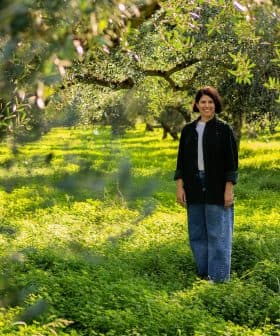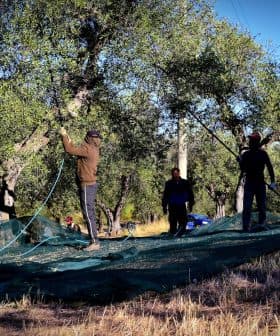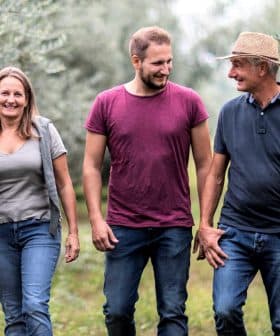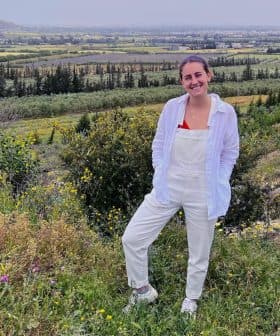 9.2K reads
9.2K readsHealth
Olive Oil One Factor in Extraordinary Longevity of Some Sardinian Residents
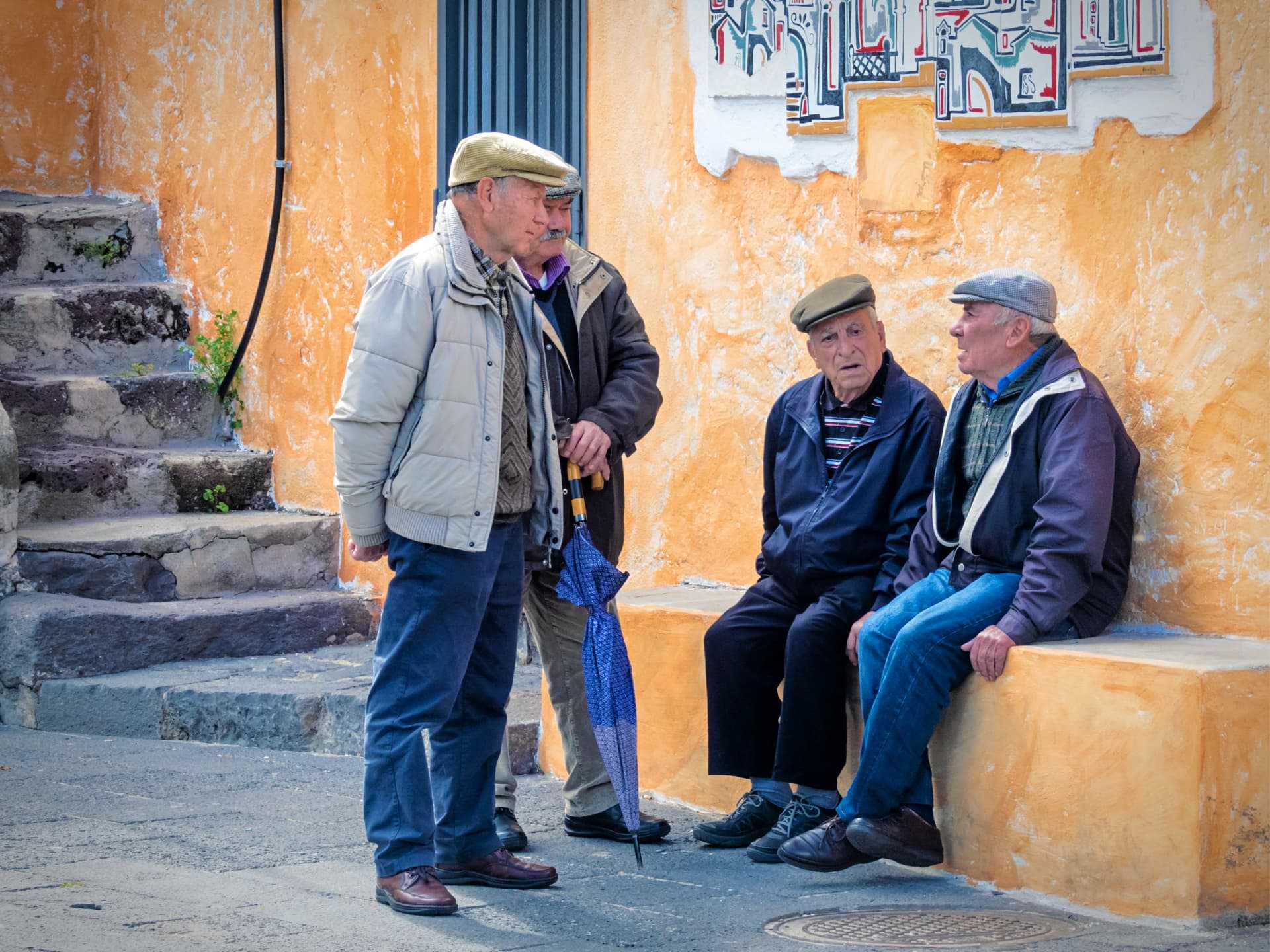
Research shows that the daily consumption of olive oil may have contributed to the longevity of a population in Sardinia, one of the Longevity Blue Zones where lifestyle and diet play a more significant role in longevity than genetics. The introduction of olive oil and a shift towards a Mediterranean diet have improved the health and functional status of the population, demonstrating the positive impact of dietary changes on overall well-being.
The daily consumption of olive oil might have played a role in the extraordinary longevity of a small homogeneous population on the Italian island of Sardinia, new research shows.
In one of the Longevity Blue Zones, areas where an unusual number of people live exceptionally long lives, specific eating habits coupled with extensive daily physical activities have outrun genetics as a longevity factor.
As expected, the analysis showed a beneficial health effect of the increased olive oil intake on self-perceived health, physical performance and sense organs functionality.
“For a long time, researchers have been focusing on the genetic characteristics of this small population that lives in the mountainous area of central Sardinia, since demographics showed us how their longevity and well-being data differed from those observed in the other areas of the island, and Italy as well,” said Giovanni Pes, a professor of medical sciences at the University of Sassari, in Sardinia, and primary author of the newly published study.
Initially, researchers focused on the history of the island and its centuries-long isolation from the continent, which has resulted in a homogenous and unique genetic heritage. Still, those studies did not help unravel the mystery.
See Also:Health News“Our research, as well as many others, carried out here and elsewhere, hint at the fact that there is no direct correlation between genetic characteristics of the observed population and their longevity,” Pes told Olive Oil Times. “If we look at the most recent studies about genetics and longevity, we understand how the genetic factor does not exceed five or six percent in determining the longevity of a population.”
Lifestyle, nutrition, physical activity and social bonding must have played a more significant role in determining the Longevity Blue Zone characteristics than genetics, Pes argued.
Researchers investigated those traits in a sample of 150 of the island’s oldest residents, whose age ranged between 90 and 101 years.
“Participants were interviewed using validated questionnaires to assess the consumption frequency of common food items, and the correlation with self-rated health, comorbidity, affective and cognitive level, physical mobility, disability and anthropometric parameters,” Pes said.
The research investigated how eating habits changed over time in the interviewed sample.
“We are talking about a population who used to eat very simply, generally poor people who had access to what their land could offer, such as dairy products derived from sheep and goats, with very little agriculture activities taking place on those steep hills,” Pes said. “They used to eat huge quantities of bread baked out of cereals imported from the plains, as well as legumes and potatoes that were cultivated in small gardens.”
That population in the mid-20th century ate mainly saturated animal fats, such as lard, thus achieving unusual longevity.
“We know that saturated fats are associated with a higher risk of cardiovascular disease,” Pes said. “At the time though that population was overly active every day.”
“In previous studies, we have determined a correlation between the ground inclination of the hills and the many miles they used to walk every day with their longevity,” he added. “Their energy consumption was significantly higher than that of the inhabitants of the plains, and it has played a relevant role in letting them preserve their cardiovascular fitness in older age.”
See Also:Olive Oils From Sardinia Find a Modern AudienceResearchers also believe that traditional family bonds have also played a role in the health of these exceptionally old residents of the Longevity Blue Zone.
“Those are families who are used to living close together, one generation after the other,” Pes said. “The oldest relatives live with the younger generations. Emotional exchanges and dialogue contribute to their mental health. The elders are very well respected by all here, unlike elsewhere.”
The introduction of a more varied diet and the replacement of lard with olive oil brought further improvements, the researchers added.
“Our research focused on their food choices at younger ages, investigating their dietary history,” Pes said. “While all limits on research based on the memory of the interviewed sample must be considered, we believe that during their nutrition transition, their eating habits have improved because they ate similarly to the Mediterranean diet.”
Over the last few decades, olive oil production has been expanding in Ogliastra, which sits at the heart of the Longevity Blue Zone. High-quality extra virgin olive oil is now produced and consumed by the local residents.
“Nutrition transition is often considered a negative process involving the switch from a healthy traditional diet rich in nutrients to a diet characterized by excessive consumption of proteins, saturated fats and simple sugars,” the researchers wrote in the study.
“However, in the Sardinian Longevity Blue Zone, the process also brought positive elements,” they added. “The traditional diet, containing an unbalanced intake of meat and dairy products, was progressively replaced by a diet more representative of the typical Mediterranean model, where the consumption of fish, leafy greens and fruit was higher.”
The research showed how the change in the diet habits across the nutrition transition resulted in different health and functional status outcomes.
“As expected, the analysis showed a beneficial health effect of the increased olive oil intake on self-perceived health, physical performance and sense organs functionality,” the scientists wrote. “In addition, a positive association was detected between an increased sheep, goat and chicken meat intake and functionality in activities of daily living, suggesting that a surplus of animal proteins may have indirectly improved motor performance by preserving muscle mass.”
“Although meat consumption has been linked to increased all-cause mortality, this is restricted to red and processed meat, while the consumption of poultry meat, as in the case of Longevity Blue Zone, can provide several health benefits,” they added. “The consumption of dairy products, similar before and after the nutritional transition, did not affect health indicators.”
To correctly place all of the pieces of a very complex puzzle, researchers are now working with their colleagues, who are studying the oldest residents of three other known blue zones: the Greek island of Ikaria, the Japanese island of Okinawa and Nicoya in Costa Rica.
“While feeding habits may relevantly differ, we are now investigating the commons factors,” Pes concluded.


